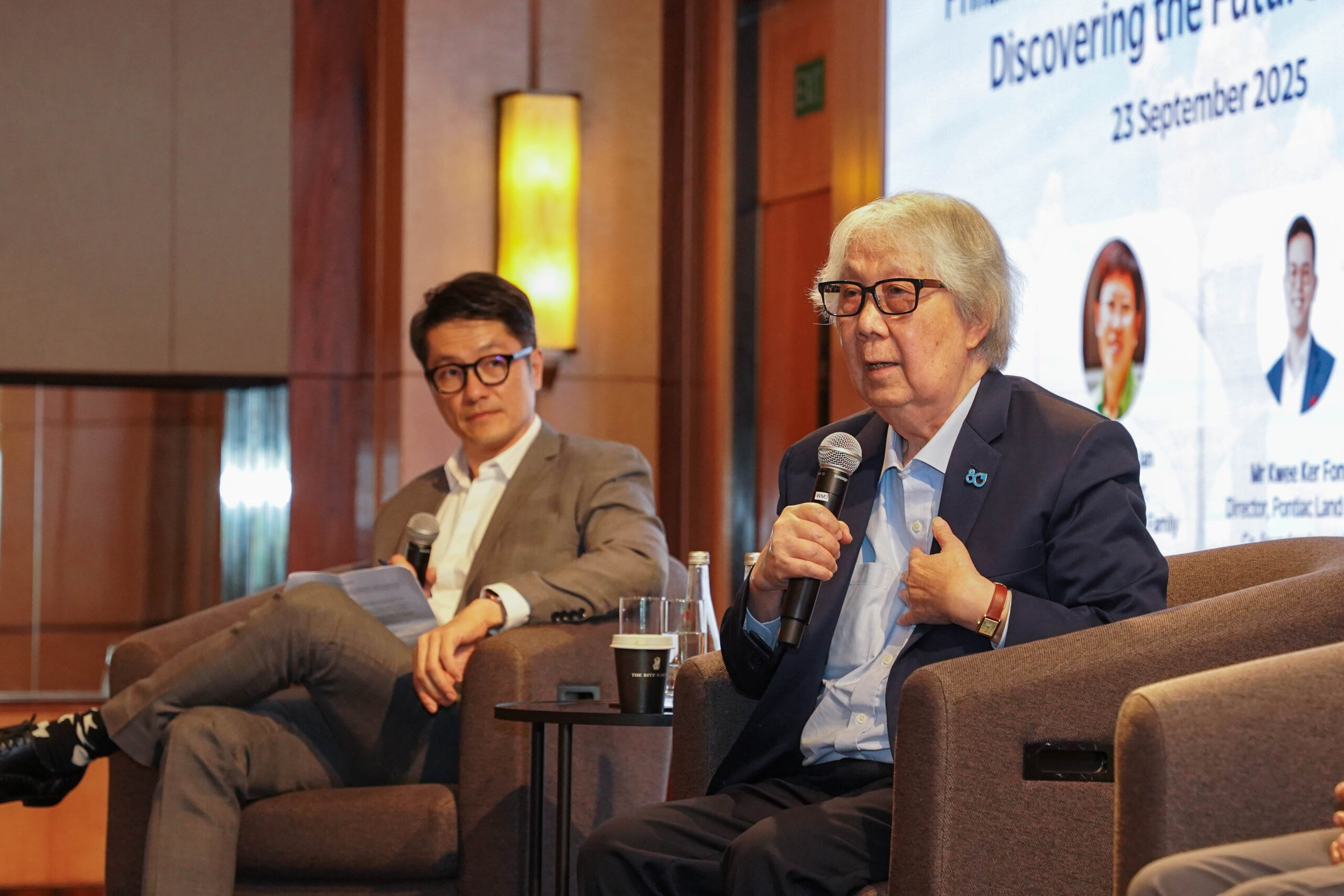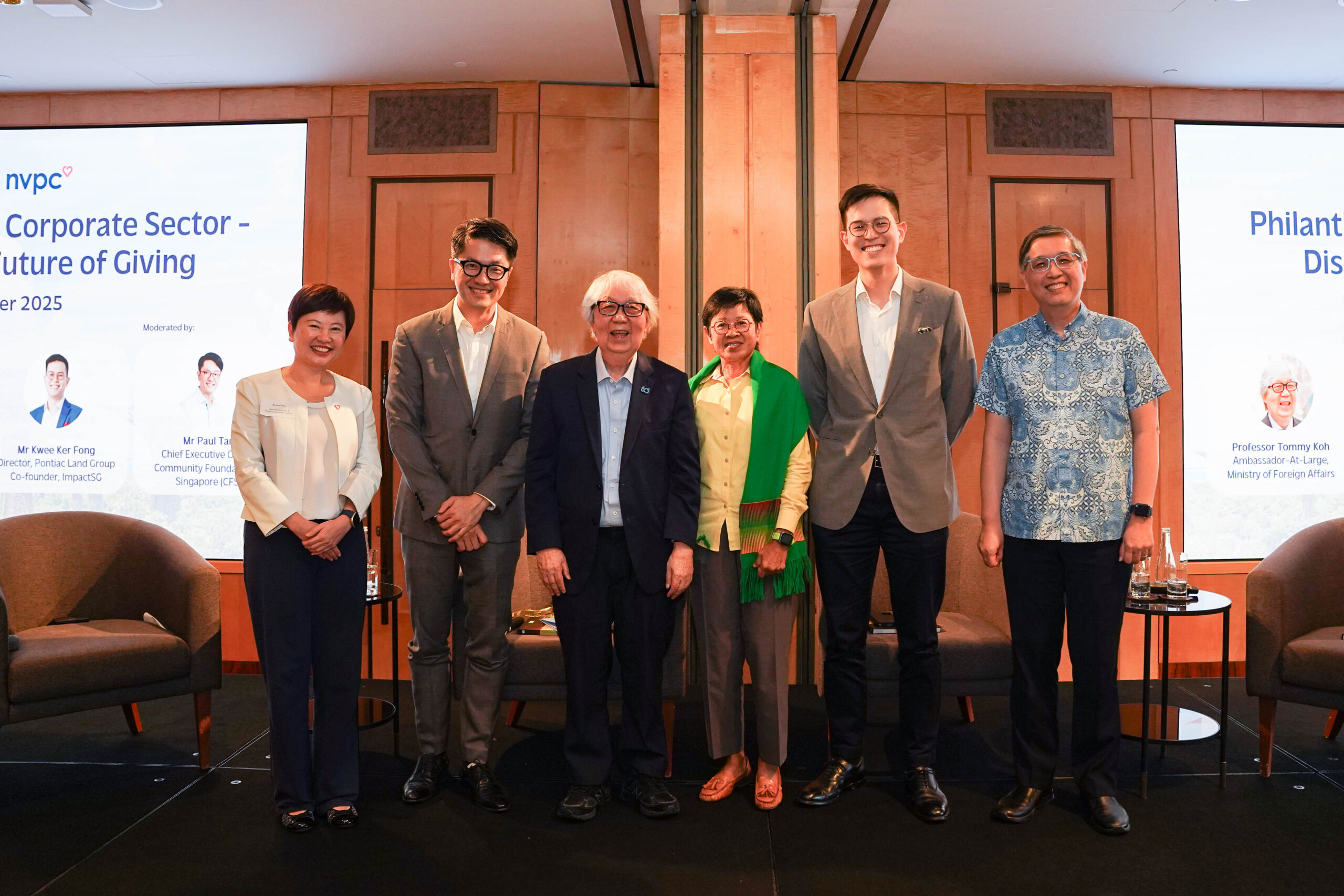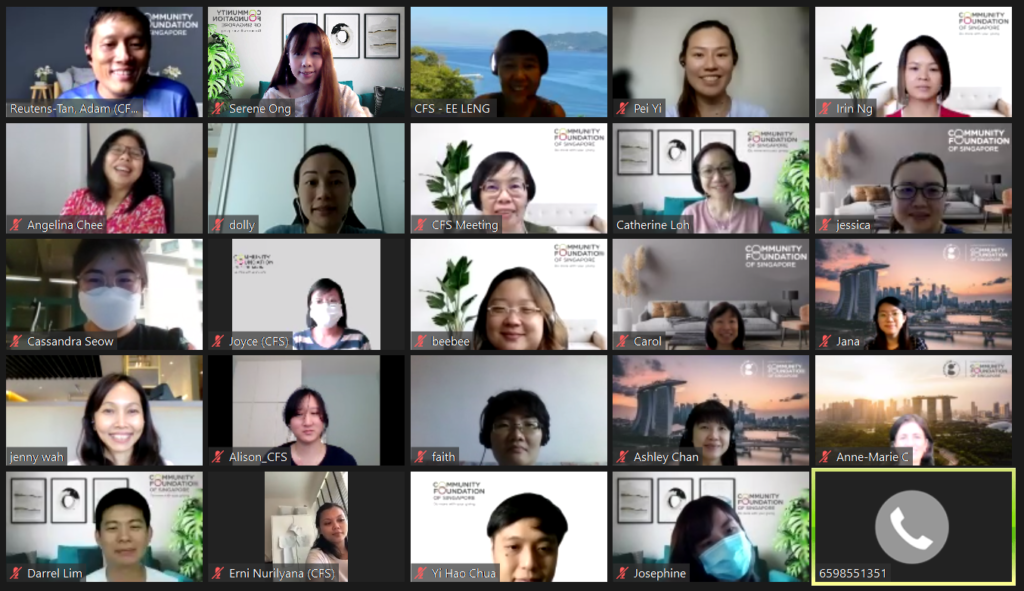CFS’ LaLa Café Series: Sustainability begins at home

CFS’ LaLa Café is a virtual place to learn, socialise and rejuvenate for everyone at CFS. It is conducted by our employees, partners, and vendors, to cultivate a growth-driven and dynamic work environment.
For the July edition of LaLa Café, the theme was sustainability. One of our colleagues, Adam Reutens-Tan, a Principal Consultant at CFS with a personal passion for sustainability, introduced sustainability and how philanthropy could play a part.
The talk was a Sustainability 101 for those new to the topic, with brief explanations on ESG (Environment, Social and Governance) and the SDGs (Sustainable Development Goals) and how they are related.
Peppering the talk with insightful nuggets of information, such as Earth Overshoot Day, to illustrate the alarming rate at which we use our resources, Adam spoke about the threat of climate change. He demostrated how even climate change events across the globe affected Singapore through sea level increases and disrupted food supply.
Adam then brought it home by explaining how CFS could be sustainable. He gave a few examples, such as the digitisation of paper-based processes and virtual events, before stating that CFS had a considerable role in our value chain, namely with our grantee partners and donors.
CFS continuously engages like-minded donors, like the Mind the Gap 200 – Sustainable Earth Fund, to support robust sustainability-related programmes. Adam concluded by reminding all attendees that everyone had a part to play. Just as the SDGs are all interwoven, it was only with the collective effort of all employees that CFS could be a sustainability champion.
This talk is part of CFS’ continuous efforts and commitment in sustainability. We plan to further advocate and introduce more sustainable practices in different areas of our work and organisation.
Operationally, CFS aims to reuse, reduce and recycle to reduce waste and manage our paper and plastic consumption. We have also implemented a Daily Earth Hour.
Externally, CFS will continue to assess programmes for their sustained impact, to facilitate sustainable giving. We will also continue to actively engage our grantees to source more sustainability-related programmes for our donors.
To find out more about our programmes and start your sustainable giving journey, read more about it here.
Adam is a Principal Consultant with CFS and has vast experience as a sustainability practitioner. He is an advocate for sustainable practices. His colleagues are still wondering how his monthly household utilities bill is only around $70.
CFS’ LaLa Café is a virtual place to learn, socialise and rejuvenate for everyone at CFS. It is conducted by our employees, partners, and vendors, to cultivate a growth-driven and dynamic work environment.
For the July edition of LaLa Café, the theme was sustainability. One of our colleagues, Adam Reutens-Tan, a Principal Consultant at CFS with a personal passion for sustainability, introduced sustainability and how philanthropy could play a part.
The talk was a Sustainability 101 for those new to the topic, with brief explanations on ESG (Environment, Social and Governance) and the SDGs (Sustainable Development Goals) and how they are related.
Peppering the talk with insightful nuggets of information, such as Earth Overshoot Day, to illustrate the alarming rate at which we use our resources, Adam spoke about the threat of climate change. He demostrated how even climate change events across the globe affected Singapore through sea level increases and disrupted food supply.
Adam then brought it home by explaining how CFS could be sustainable. He gave a few examples, such as the digitisation of paper-based processes and virtual events, before stating that CFS had a considerable role in our value chain, namely with our grantee partners and donors.
CFS continuously engages like-minded donors, like the Mind the Gap 200 – Sustainable Earth Fund, to support robust sustainability-related programmes. Adam concluded by reminding all attendees that everyone had a part to play. Just as the SDGs are all interwoven, it was only with the collective effort of all employees that CFS could be a sustainability champion.
This talk is part of CFS’ continuous efforts and commitment in sustainability. We plan to further advocate and introduce more sustainable practices in different areas of our work and organisation.
Operationally, CFS aims to reuse, reduce and recycle to reduce waste and manage our paper and plastic consumption. We have also implemented a Daily Earth Hour.
Externally, CFS will continue to assess programmes for their sustained impact, to facilitate sustainable giving. We will also continue to actively engage our grantees to source more sustainability-related programmes for our donors.
To find out more about our programmes and start your sustainable giving journey, read more about it here.
Adam is a Principal Consultant with CFS and has vast experience as a sustainability practitioner. He is an advocate for sustainable practices. His colleagues are still wondering how his monthly household utilities bill is only around $70.
- Related Topics For You: CLIMATE & ENVIRONMENT, ENVIRONMENT, EVENTS



